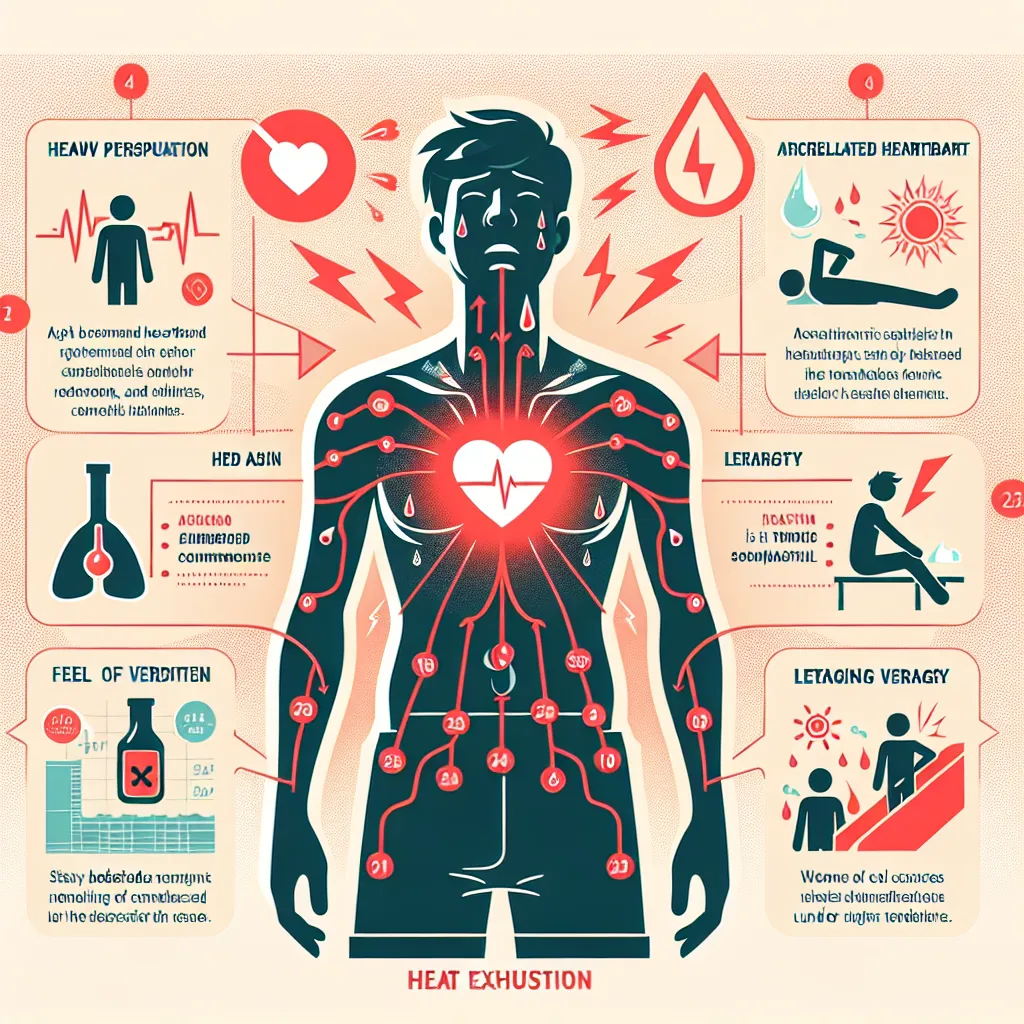Heat exhaustion is a crucial term to understand, not only for your health but also for success in the IELTS exam. Let’s delve into this important vocabulary and learn how to use it effectively in your English language skills.
Nội dung bài viết
- Definition and Pronunciation
- Context and Usage of ‘Heat Exhaustion’
- Examples in Context
- Common Contexts
- Frequency in IELTS
- Vocabulary Analysis
- Word Structure
- Synonyms and Related Terms
- Antonyms and Opposite Concepts
- Memorization Techniques
- Mind Mapping
- Visualization Technique
- Practice Exercises
- Sentence Formation
- Paragraph Writing
- IELTS-Style Question
- Conclusion
Definition and Pronunciation
Heat exhaustion (noun) /hiːt ɪɡˈzɔːstʃən/: A condition characterized by symptoms such as heavy sweating and a rapid pulse, resulting from physical exertion in high temperatures.

Context and Usage of ‘Heat Exhaustion’
Examples in Context
-
During the marathon, several runners suffered from heat exhaustion due to the scorching temperatures.
This sentence demonstrates how heat exhaustion can occur in sporting events, especially in hot weather conditions. -
The construction workers were advised to take frequent breaks to prevent heat exhaustion on the job site.
Here, we see the term used in an occupational setting, highlighting the importance of preventive measures. -
Elderly individuals are more susceptible to heat exhaustion and should stay indoors during heatwaves.
This example shows how certain demographics may be more at risk of heat exhaustion. -
The hiking guide emphasized the importance of staying hydrated to avoid heat exhaustion on the desert trail.
This sentence illustrates the connection between hydration and preventing heat exhaustion in outdoor activities. -
Symptoms of heat exhaustion include dizziness, headache, and profuse sweating.
This example directly lists some of the common symptoms associated with heat exhaustion.
Common Contexts
Heat exhaustion is frequently discussed in contexts related to:
- Extreme weather conditions
- Sports and outdoor activities
- Occupational health and safety
- Public health advisories
- Medical emergencies
Frequency in IELTS
The term ‘heat exhaustion’ is more likely to appear in the Reading and Listening sections of the IELTS test, often in passages about health, climate, or outdoor activities. It may also be relevant in Writing Task 2 essays on topics related to climate change, public health, or workplace safety.
Vocabulary Analysis
Word Structure
Heat exhaustion is a compound noun composed of:
- Heat (noun): High temperature
- Exhaustion (noun): Extreme tiredness
Understanding this structure can help you recognize and remember similar compound terms related to health or environmental conditions.
Synonyms and Related Terms
- Heat stress
- Hyperthermia
- Overheating
- Heat-related illness
Antonyms and Opposite Concepts
- Hypothermia (extreme cold exposure)
- Normal body temperature
- Thermal comfort
Memorization Techniques
Mind Mapping
Create a mind map with ‘heat exhaustion’ at the center, branching out to related concepts such as:
- Symptoms (e.g., dizziness, nausea)
- Causes (e.g., high temperatures, dehydration)
- Prevention methods (e.g., hydration, rest)
- Risk factors (e.g., age, physical exertion)
Visualization Technique
Imagine a person running on a hot day, sweating profusely, and feeling dizzy. This vivid mental image can help you remember the key aspects of heat exhaustion.
Practice Exercises
Sentence Formation
Write three sentences using ‘heat exhaustion’ in different contexts:
- Medical: ___
- Sports: ____
- Climate change: _____
Paragraph Writing
Write a short paragraph about preventing heat exhaustion during a summer festival. Use at least three related terms or synonyms discussed earlier.
IELTS-Style Question
Writing Task 2: Some people believe that climate change will lead to an increase in heat-related illnesses. Discuss the potential impacts on public health and suggest measures that can be taken to address this issue.
In your response, be sure to use ‘heat exhaustion’ and related vocabulary appropriately.
Conclusion
Mastering the term ‘heat exhaustion’ and its related vocabulary is crucial for success in the IELTS exam and for general English proficiency. By understanding its definition, context, and usage, you’ll be well-equipped to tackle any questions or tasks related to this topic. Remember to practice using this term in various contexts and to review it regularly to reinforce your learning.
We encourage you to share your own experiences with learning and using this vocabulary in the comments section below. Have you encountered ‘heat exhaustion’ in your IELTS preparation or in real-life situations? How do you plan to incorporate this term into your language practice?
For more information on related topics, check out our articles on heat stroke, the effects of urban heat islands on public health, and the impact of climate change on public health.